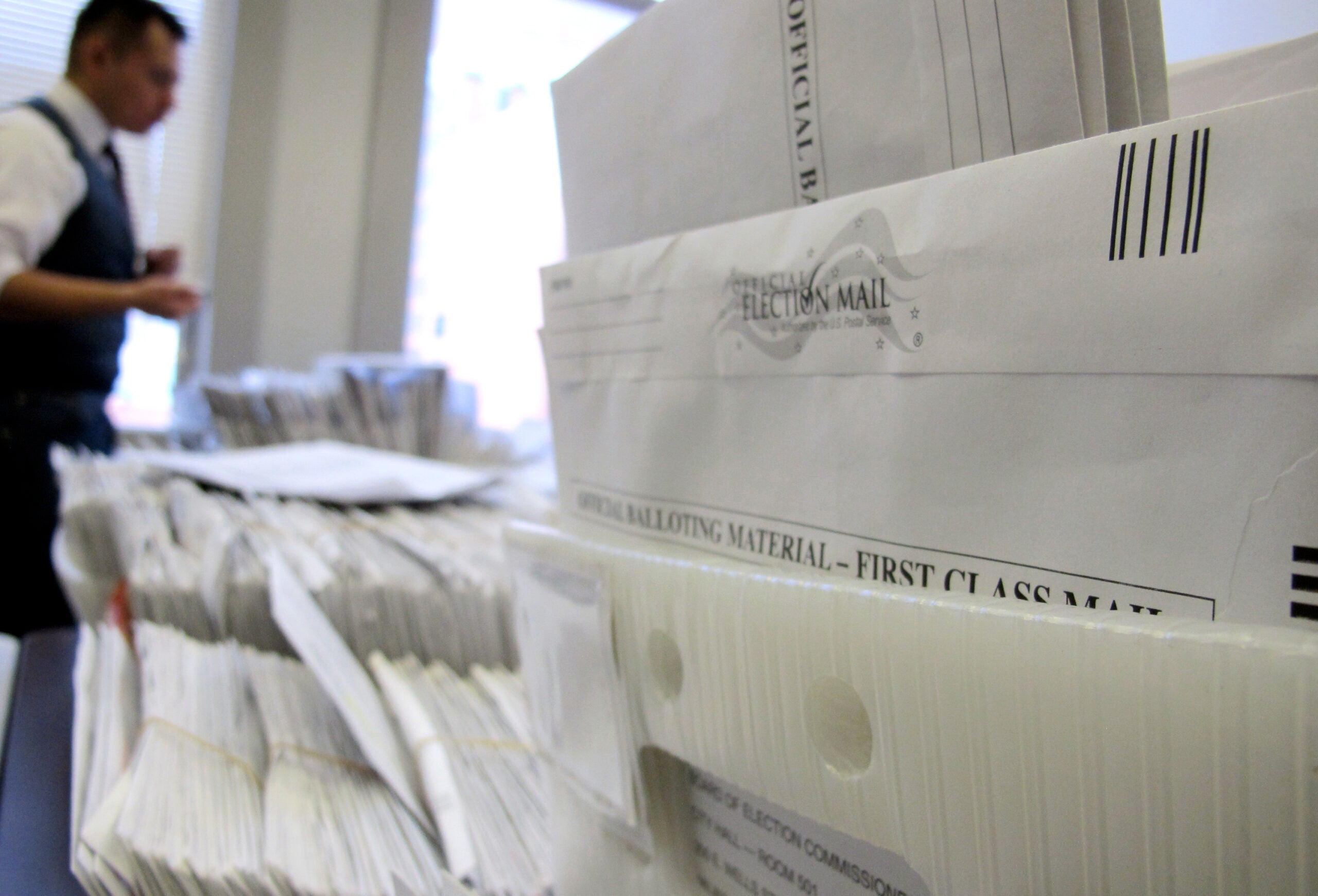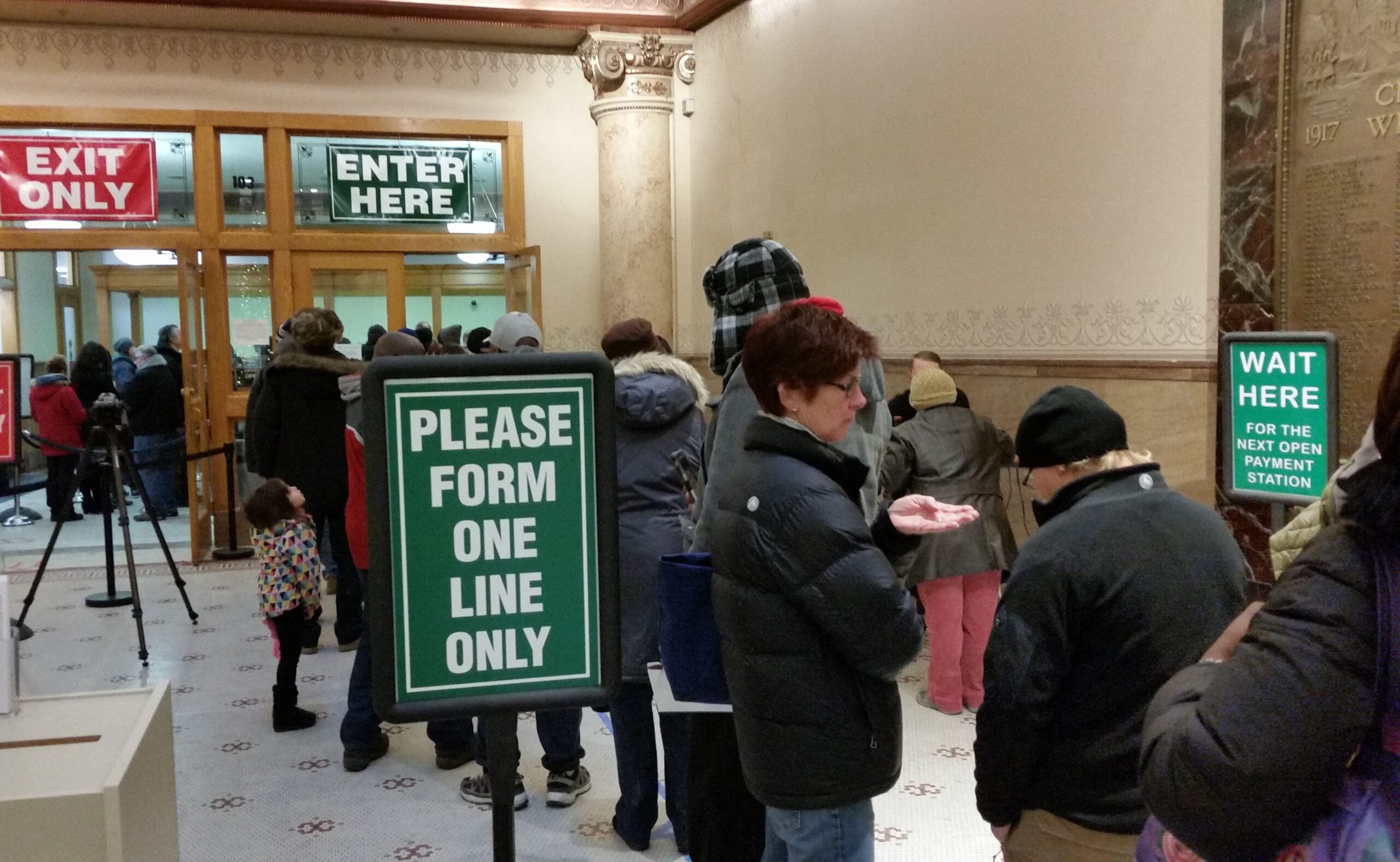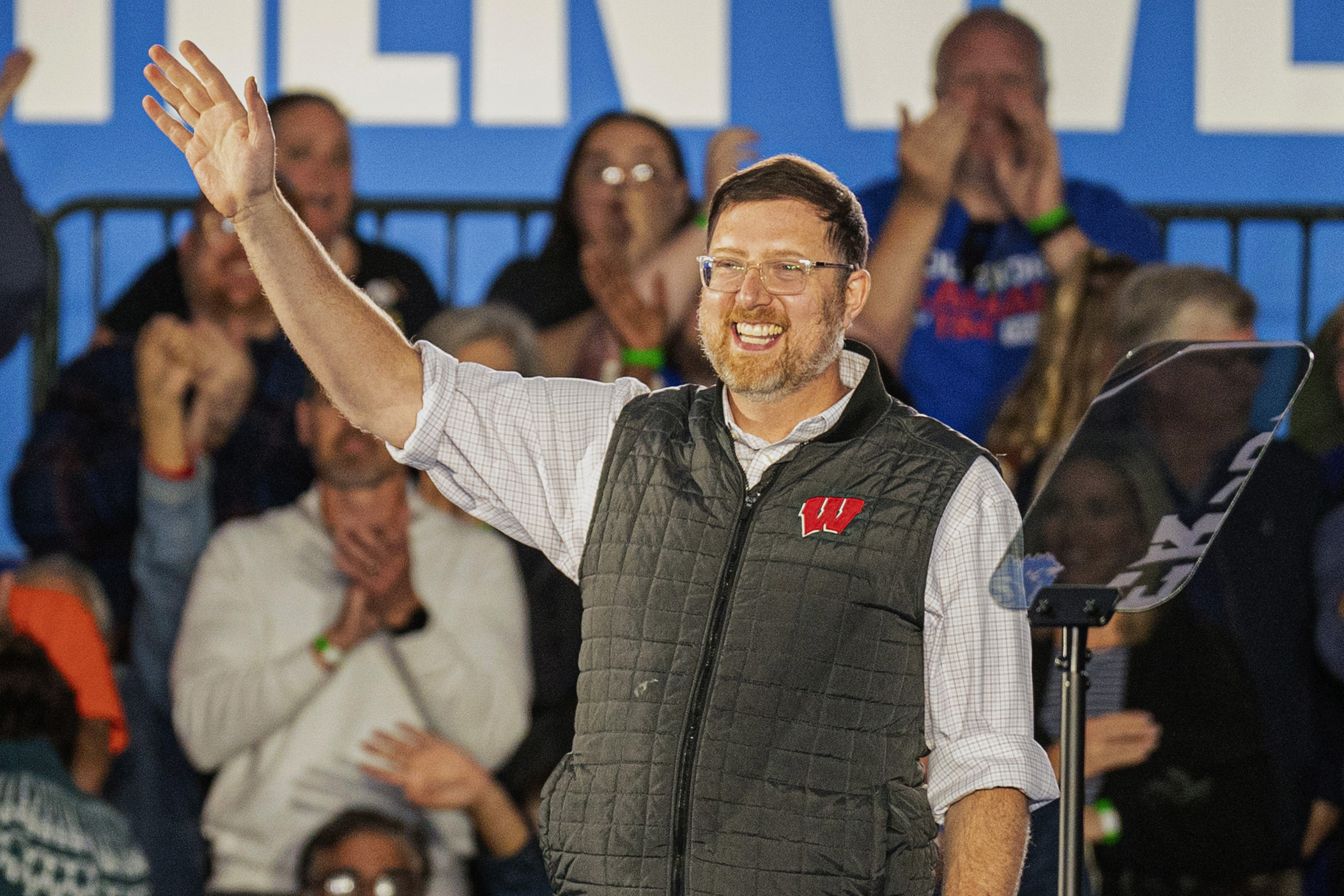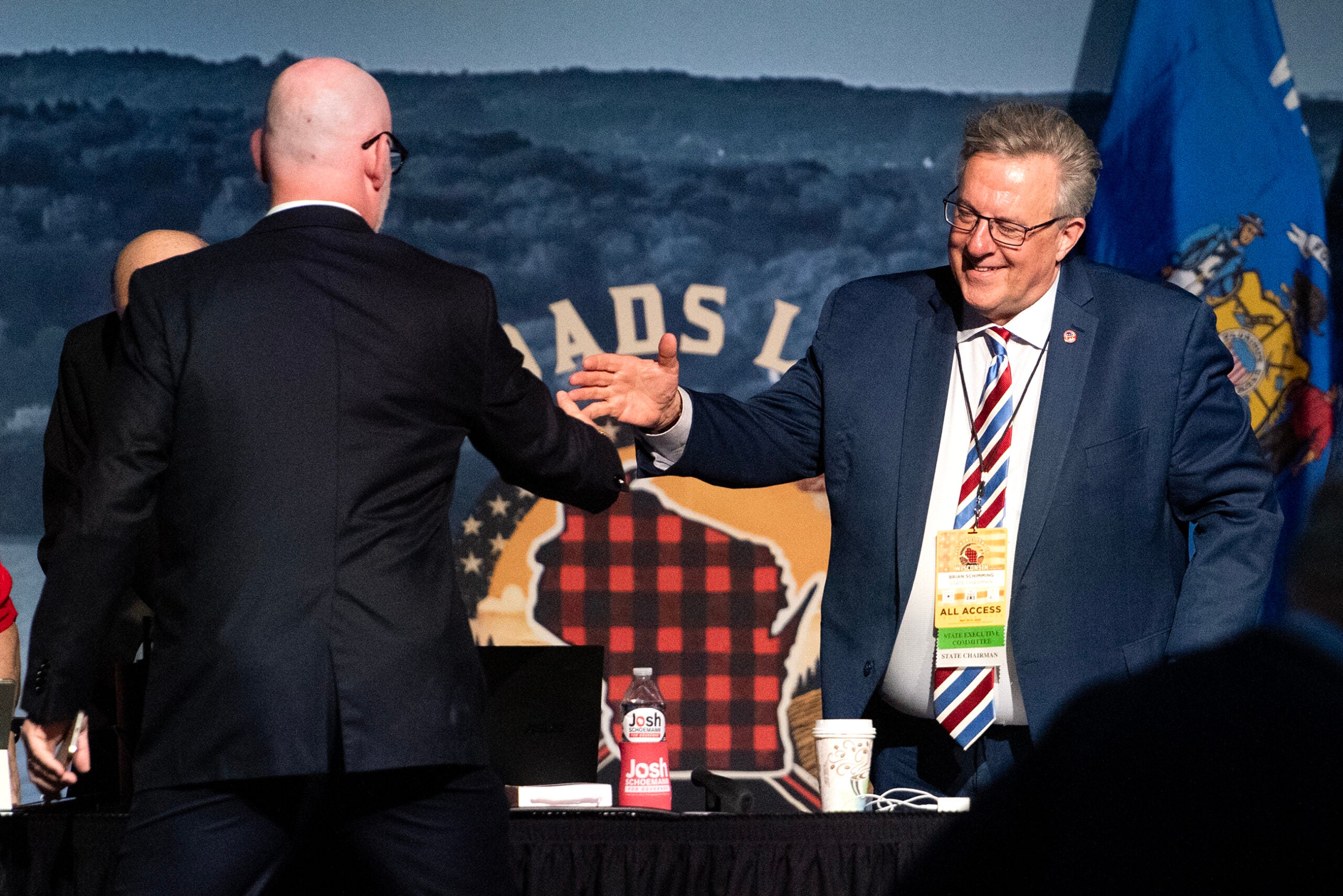After hearing the state’s safer-at-home order has been extended through May, the heads of both state parties said Thursday a mail-in election could be considered for the May 12 special election for Wisconsin’s 7th Congressional District.
Republican Party Chair Andrew Hitt and Democratic Party Chair Ben Wikler were asked about the special election during a virtual event hosted by WisPolitcs.com and the Milwaukee Press Club.
The event took place at the same time Gov. Tony Evers announced the state’s safer-at-home order would be extended to May 26.
News with a little more humanity
WPR’s “Wisconsin Today” newsletter keeps you connected to the state you love without feeling overwhelmed. No paywall. No agenda. No corporate filter.
Wikler said the special election should be switched to an all-mail election and postponed if needed.
“If it requires more time to make that work functionally, then we should take more time,” Wikler said. “The most important thing is to not force anyone to choose between potential exposure to COVID and casting a ballot.”
Hitt said discussion needs to happen quickly between the governor’s office and the state’s Republican Party.
“We need to understand where (Evers) is going,” Hitt said. “Have that dialogue (with the) governor and with that dialogue, I’m confident we can get to a good answer here. It’s not fair to the voters, it’s also not fair to the people who support the campaigns. We just need an answer early on this one.”
It appears that for now at least, the election will likely be in-person. During an afternoon press conference, Ryan Nilsestuen, Evers’ legal council, said the May 12 election will likely go on as scheduled.
Nilsestuen said the governor is keeping a “close eye” on the election, but there are many differences between the May 12 election and what occured on April 7. The 7th Congressional District covers central and much of northern Wisconsin.
The day before the April 7 election, Evers attempted to push back the election until June with an emergency order, but the Republican-controlled state Legislature immediately made an appeal to the state Supreme Court, which ruled 4-2 to strike the order down in just a matter of hours.
GOP lawmakers opposed delaying the election, saying it would leave vacancies in important local offices across the state.
On April 7, thousands of people waited in line for hours to vote, particularly in Milwaukee and Green Bay where there were five and two polling places open, respectively.
Hitt said Republicans would have worked with Evers, if he hadn’t tried to make changes on the eve of the election. He also said the election went smoothly across the state.
“There were issues in Milwaukee and Green Bay because of the decisions of their local governments, but that wasn’t the norm,” Hitt said.
But Wikler said the election never should have taken place.
“If I could go back in time, I would do anything to try to make sure there wasn’t an in-person election on April 7,” Wikler said. “Disproportionate number of African American, Latino voters waiting in line, sometimes with oxygen tanks, canes, masks just to cast their ballots.”
Despite the coronavirus pandemic, statewide voter turnout hit 34.3 percent, according to the Wisconsin Elections Commission, making it among the highest turnout state Supreme Court races ever.
And Democrats were successful April 7. Dane County Judge Jill Karofsky bested conservative Justice Daniel Kelly 55-45 percent in the race for the Wisconsin Supreme Court.
Wikler said his party was fueled by voters who were upset about the way the election took place.
But Hitt said he doesn’t believe that was the case. He said Republicans were also upset about the pandemic, and Evers dragging his feet about communicating with the Republican Party about the status of the election.
Hitt believes Kelly lost his seat because it was a Democratic presidential primary, that still included nominee U.S. Sen. Bernie Sanders.
Sanders, of Vermont, suspended his campaign Wednesday, the day after in-person voting took place in Wisconsin.
Barry Burden, University of Wisconsin-Madison political science professor, said that likely gave some Democrats more of an incentive to vote even if the race was all but decided, according to previous Wisconsin Public Radio reporting.
“It may have been why Bernie Sanders decided to stay in the race through Wisconsin,” Burden said. “His supporters tend to be enthusiastic and very passionate — attached to him personally. And they may have come out just as a show of their support for him and his platform and that trickled down to help Karofsky in the Supreme Court race.”
This week, incoming Milwaukee alder Marina Dimitrijevic announced a plan to send all registered voters in the city of Milwaukee an application for an absentee ballot along with a postage-paid return envelope for the November election.
Approximately 296,000 Milwaukee residents would receive the letter.
Wikler said he supports the idea, especially if Republicans won’t make it easier for people to vote.
Hitt said if absentee ballot applications are mailed to people, it needs to be done statewide, not just by one party or one municipality.
Wisconsin Public Radio, © Copyright 2026, Board of Regents of the University of Wisconsin System and Wisconsin Educational Communications Board.






